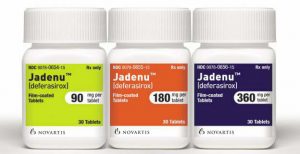With limited health insurance coverage and low government spending on healthcare, India needs better health infrastructure and a more robust healthcare financing system to broaden access, Novartis India
notes
Global leader in healthcare
As a science-based and patient-oriented healthcare company, Novartis strives to be a global leader in growing areas of healthcare. Following a corporate transformation Novartis globally focuses on three divisions with global scale and innovation power – pharmaceuticals, eye care and generic medicines. This has strengthened the future growth prospects of the company.
In India, the Pharmaceutical business of Novartis India Limited is focused on Bone & Pain, Calcium portfolio, Gynecology and Neurosciences and the Generics business is focused on Gynecology, Anti-TB and Anti-infectives. Pharmaceuticals develops innovative, patent-protected medicines to enhance health outcomes for patients and health-care providers. The division is at the forefront of development and commercialization in oncology, primary care and specialty medicines.
Among the main business divisions, Alcon provides innovative products that enhance quality of life by helping people worldwide see better. Its Surgical and Vision Care businesses offer a wide spectrum of eye care products. In addition, Sandoz products, which are focused in Retail Generics, Biopharmaceuticals & Oncology Injectables, and Anti-Infectives help make affordable, high-quality medicines available to more people.
Wealth of experience
Jawed Zia is Country President, Novartis India responsible for the Novartis Group of Companies in the country and leads the Pharmaceuticals business as well. Mr. Zia has a wealth of experience gained in various geographies and functions across the globe. Having joined Novartis in 1987, he has a successful career history working across Pharmaceuticals, Consumer Health and Devices in positions of increasing responsibility across various functions of Market Research, Brand Management, Marketing Management, Division Management and Area Management in Ireland, Saudi Arabia, Turkey, Singapore, Canada, Switzerland and now in India.
A graduate in Clinical Pharmacology from All India Institute of Medical Sciences, New Delhi and holding an MBA from Trinity College, Dublin (Ireland), Mr. Zia has a deep knowledge and extensive experience of building businesses from inception. His innate ability to drive growth of people and businesses, build brands, transform operations and scale capabilities has been the hallmark of his success.
A firm believer in the power of innovation and collaboration, he is passionate about driving access to healthcare and has been steering the company towards ‘Winning for Patients’. A strong proponent of the adage ‘People are our greatest asset’, he takes a keen interest in leadership development across the organisation.
MediWorldME has recently met with Mr Zia to find more about Novartis’ product offerings as well as the outlook of the industry. Below is our discussion in a Q&A format..
The fixation of ceiling prices of essential drugs by the pharma pricing regulator NPPA has impacted the profitability of the Indian pharma landscape. What’s your take on it?
Expansion of the National List of Essential Medicines (NLEM) has led to an increase in the scope of drugs subject to price control. The consequent moves by NPPA to bring an increasing number of drugs vide NLEM-2015 has certainly impacted the profitability of pharma-ceutical companies in India.
Affordability, Availability and Access are equally important when looked at in the context of healthcare. Unfortunately, medicines are looked at with a singular focus, that of affordability which is invariably connected with price. Government spending on healthcare is still very low at 1.4 per cent of GDP, lower than even neighboring countries. All the ot her BRICS countries spend upwards of 3 per cent of GDP on healthcare. When viewed in the context of very limited health insurance coverage this gains importance.
her BRICS countries spend upwards of 3 per cent of GDP on healthcare. When viewed in the context of very limited health insurance coverage this gains importance.
It becomes imperative for this to change so that access to quality healthcare is available to all. India needs better health infrastructure and a more robust healthcare financing system in order to broaden access. Government should increase its spend on healthcare to at least 3 per cent of the GDP. This will in turn ensure universal health coverage. Life-saving drugs that are imported should be free of any taxes and duties to the benefit of the patient.
What impact and will the recent government’s push for prescribing the drugs by generic names would pose? What are the challenges faced by the company?
India is a branded generics market. The mandate to prescribe medicines by generic names is full of challenges especially for the patient. The names of molecules are so complex it is hard to expect the medical profession to remember these names and to then write them on a prescription. Further, it means shifting the onus from the doctor to the pharmacy to issue the brand of choice. Also, it is all about trust that is reposed in a brand from a quality perspective.
The market for fixed dose combinations (FDCs) is estimated to be in the range of 35pc – 45pc of the total Indian Pharmaceutical Market. For a doctor to prescribe a medicine by his generic name, she/he will have to write down the various constituents that make up a drug. For example, a doctor prescribing Galvus-Met for diabetes will need to write Vildagliptin 50 and Metformin 500. Further, the patient will have to rely on a correct reading by the pharmacy. This can get even more complex.
For example multivitamin products have anything from three to 10 ingredients. Take the case of Becosules, a multivitamin formulation of vitamin B complex where the doctor will need to write Vitamin B12, B1, B2, B6, B3 and Folic acid with Vitamin C and Calcium Pantothenate. Till the time India progresses to a stage where literacy and technology progress to a stage where we can eliminate all chances for mis-reading a prescription, we will need to continue with prescriptions by brand in the interest of the patient.
Emphasis on healthcare is low as compared to the actual requirement. What are the steps taken by Novartis in this direction?
India is a self-pay market, which coupled with widespread low affordability poses a significant challenge to the pharmaceutical industry in general. Yet, there is hope. India’s economy is well placed to grow at a robust pace over the next five years owing to strong domestic consumption and increase in government spending on infrastructure. The overall operating environment especially with emerging digital technologies is expected to improve providing an opportunity for the pharmaceutical industry in the long term.
For rural communities, poor health is a cause of poverty, and poverty is a cause of poor health. Scalable interventions are needed to break this vicious cycle. The Healthy Family initiative of Novartis, started in India as Arogya Parivar, aims to do exactly this by empowering communities through health education and access to affordable medicines. Through a presence in 11 states in India, we see Arogya Parivar as a step in building healthy ecosystems.
 Arogya Parivar was started in 2007 and broke even within 30 months of launch, which means it has long-term sustainability built in at its core. Today, it continues to show year-on-year business growth and scalability, both in terms of product offering and geographic expansion.
Arogya Parivar was started in 2007 and broke even within 30 months of launch, which means it has long-term sustainability built in at its core. Today, it continues to show year-on-year business growth and scalability, both in terms of product offering and geographic expansion.
Through Arogya Parivar, we are bringing health education and affordable drugs against the most prevalent diseases that occur in rural areas but affordability of drugs is just the tip of the iceberg. The underlying question is: how can our healthcare system commit to make healthcare provision sustainable?
We need to look at the ecosystem of care holistically, and consider the other crucial elements that make healthcare systems function, notably the capacity to detect, diagnose and treat patients, and develop efficient distribution channels. That is why it is so important to define how to best unlock the other blockages, beyond affordability of drugs so that companies like Novartis can make their full range of medications available to all people in India in a way that adds value to the overall healthcare system.
And the strength of your presence in the Gulf Cooperation Council (GCC) countries?
Novartis is already present in the UAE market and in fact Dubai is the headquarters for the MENA (Middle East North Africa) countries. – – – –By Vasujit Kalia
















